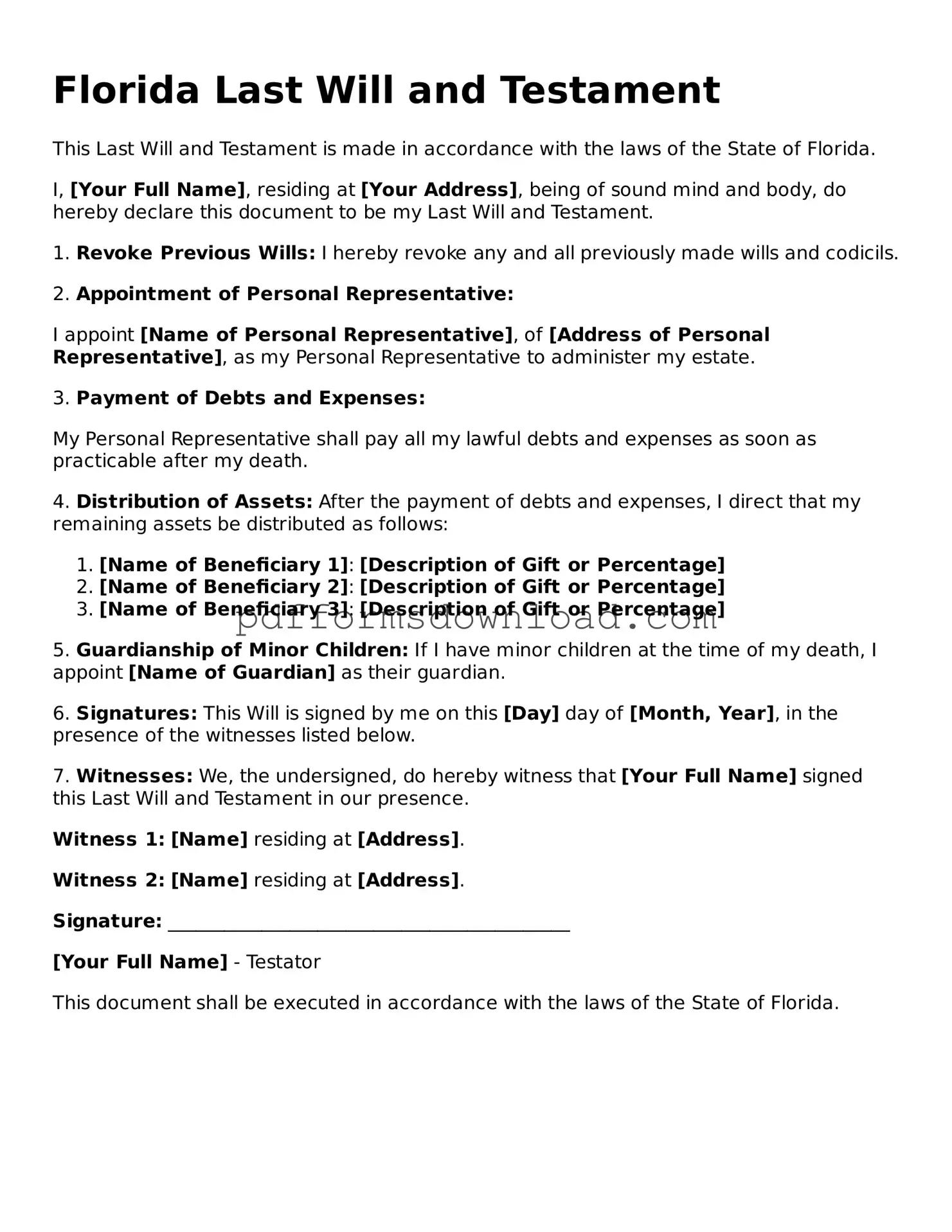Printable Florida Last Will and Testament Form
A Florida Last Will and Testament form is a legal document that outlines an individual's wishes regarding the distribution of their assets after death. This form ensures that a person's intentions are honored and provides clarity to survivors. For those interested in creating their will, filling out the form is an important step; click the button below to get started.
Make This Document Now

Printable Florida Last Will and Testament Form
Make This Document Now

Make This Document Now
or
Free PDF File
Your form is almost ready
Complete your Last Will and Testament online — edit, save, and download easily.